In today’s stressful, fast-paced world, getting quality sleep has become a luxury for many. From late-night screen time to indoor air pollution, several factors can disrupt your sleep cycle. While scented candles and white noise machines are popular choices, did you know that certain houseplants can naturally enhance sleep quality? These green companions purify the air, reduce stress, boost humidity, and even emit calming fragrances — creating the perfect environment for restful nights. Here’s a list of the top plants that help you sleep better, naturally and beautifully.
1. Lavender (Lavandula)
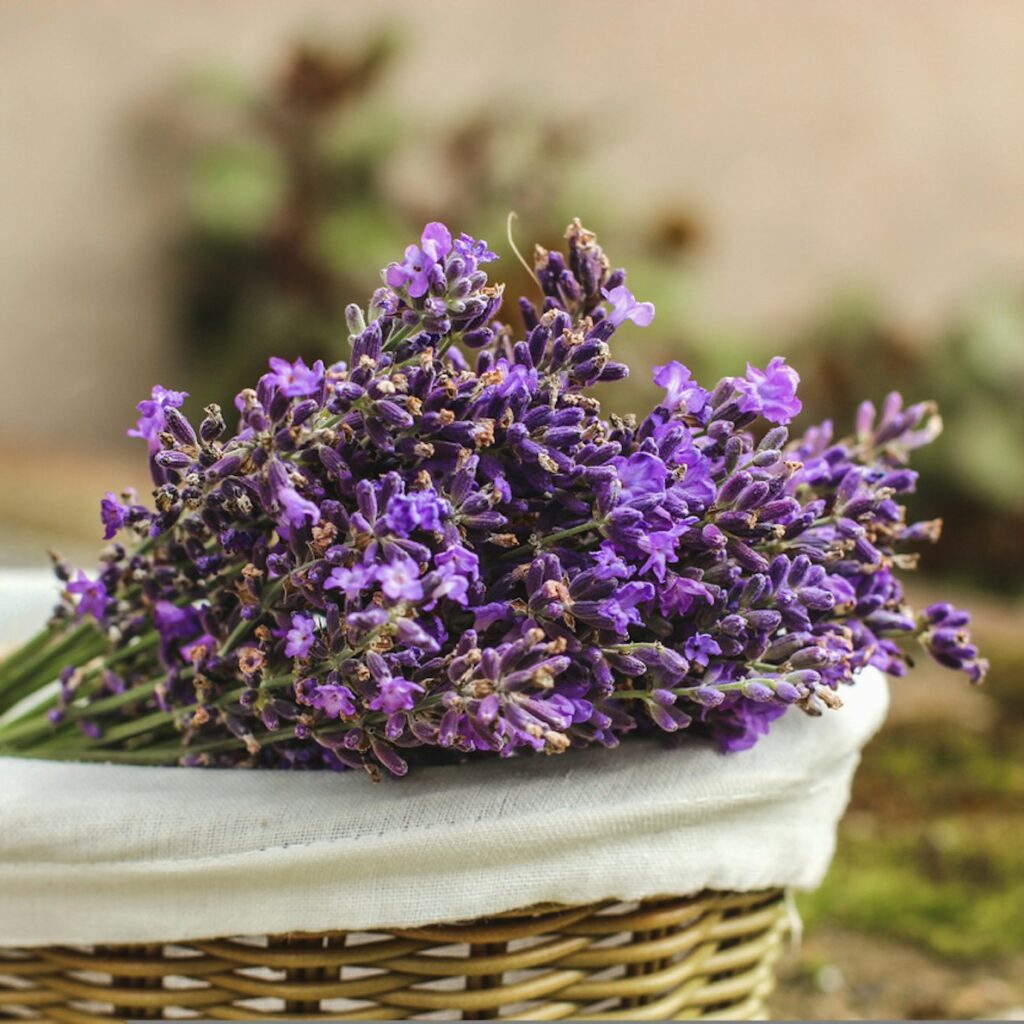
Lavender is famed worldwide for its calming scent and therapeutic properties. Research has shown that the fragrance of lavender can lower heart rate, reduce blood pressure, and ease anxiety, promoting better sleep. A potted lavender plant placed near your bedside releases soothing natural oils that help relax your mind and body. It thrives in bright, direct sunlight and requires well-drained soil. While traditionally used in aromatherapy, growing lavender indoors brings a touch of nature and a gentle, sleep-enhancing aroma to your bedroom.
2. Snake Plant (Sansevieria trifasciata)
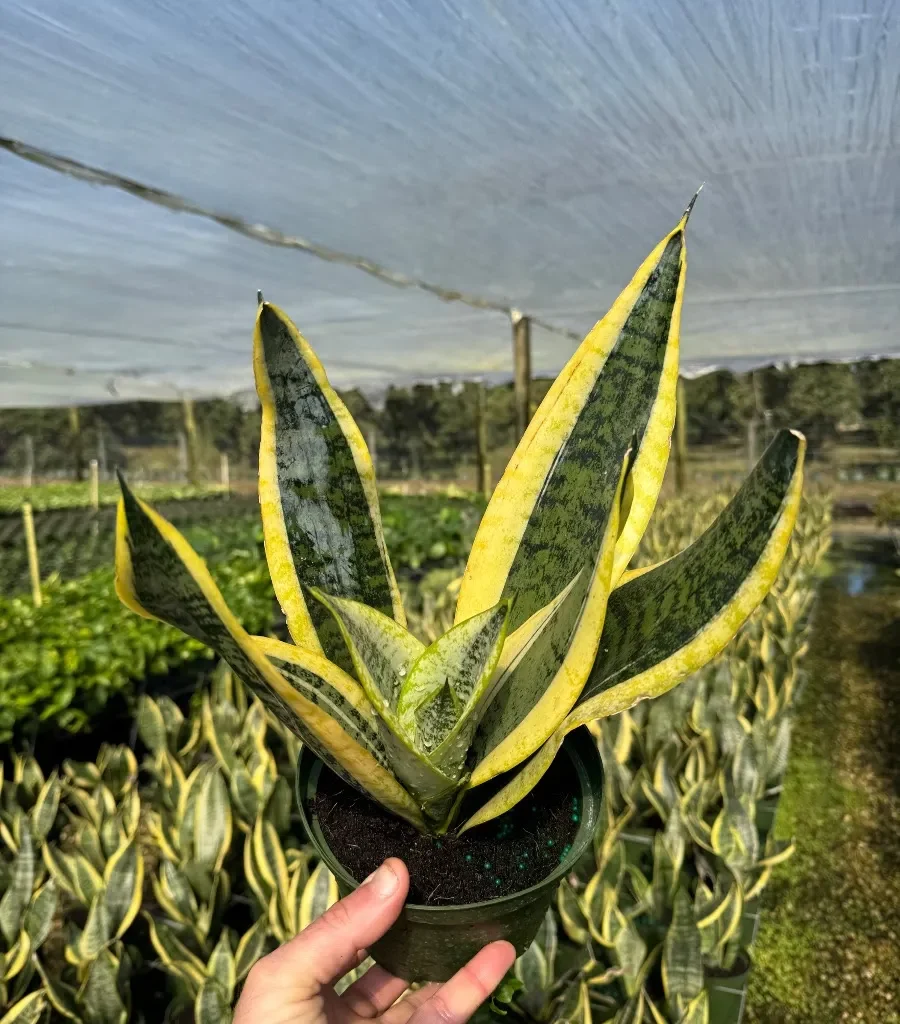
Also called Mother-in-Law’s Tongue, the Snake Plant is a hardy indoor plant that does wonders for your sleep environment. Uniquely, it releases oxygen at night while simultaneously removing harmful indoor toxins like formaldehyde and benzene. This improves air quality and oxygen levels, making it easier to breathe and sleep soundly. It requires very little care, tolerating low light and occasional watering. With its upright, sword-like leaves and air-purifying abilities, the Snake Plant is both a practical and stylish choice for any bedroom.
3. Jasmine (Jasminum)
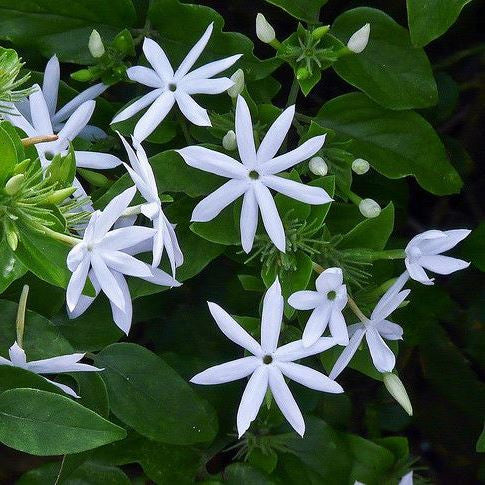
The delicate, star-shaped flowers of Jasmine produce a sweet, romantic fragrance that’s proven to have sedative effects on the nervous system. Studies suggest that inhaling Jasmine’s scent reduces anxiety, improves sleep quality, and even increases alertness during the day. A small Jasmine plant placed by your window can fill the room with its natural aroma, creating a peaceful, sleep-friendly atmosphere. Jasmine prefers bright, indirect sunlight and moist, well-drained soil. It’s an ideal plant for those seeking beauty and tranquility in their sleeping space.
4. Aloe Vera (Aloe barbadensis miller)

Aloe Vera is not just a medicinal marvel for skin care — it’s also a natural air purifier that emits oxygen during the night, improving air quality and promoting deeper, more restful sleep. Its thick, fleshy leaves absorb harmful chemicals like benzene and formaldehyde, commonly found in household items. Aloe Vera is virtually maintenance-free, thriving on minimal water and bright, indirect sunlight. Known as the “plant of immortality” in ancient cultures, it offers both aesthetic appeal and health benefits, making it a perfect bedside plant.
5. Peace Lily (Spathiphyllum)
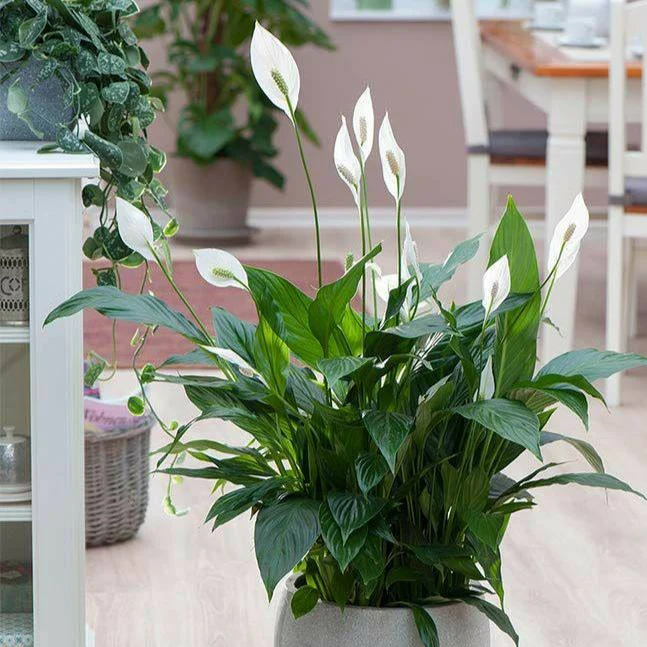
Peace Lily is a graceful plant with white blooms and deep green leaves, known for enhancing indoor air quality by filtering pollutants like ammonia, benzene, and formaldehyde. It also increases humidity levels, reducing the risk of dry skin, irritated eyes, and respiratory issues that can disturb sleep. Peace Lilies thrive in low to medium light and prefer slightly moist soil. Their calming appearance, combined with their ability to create a healthier bedroom environment, makes them a valuable addition for those seeking restful nights.
6. Gardenia (Gardenia jasminoides)
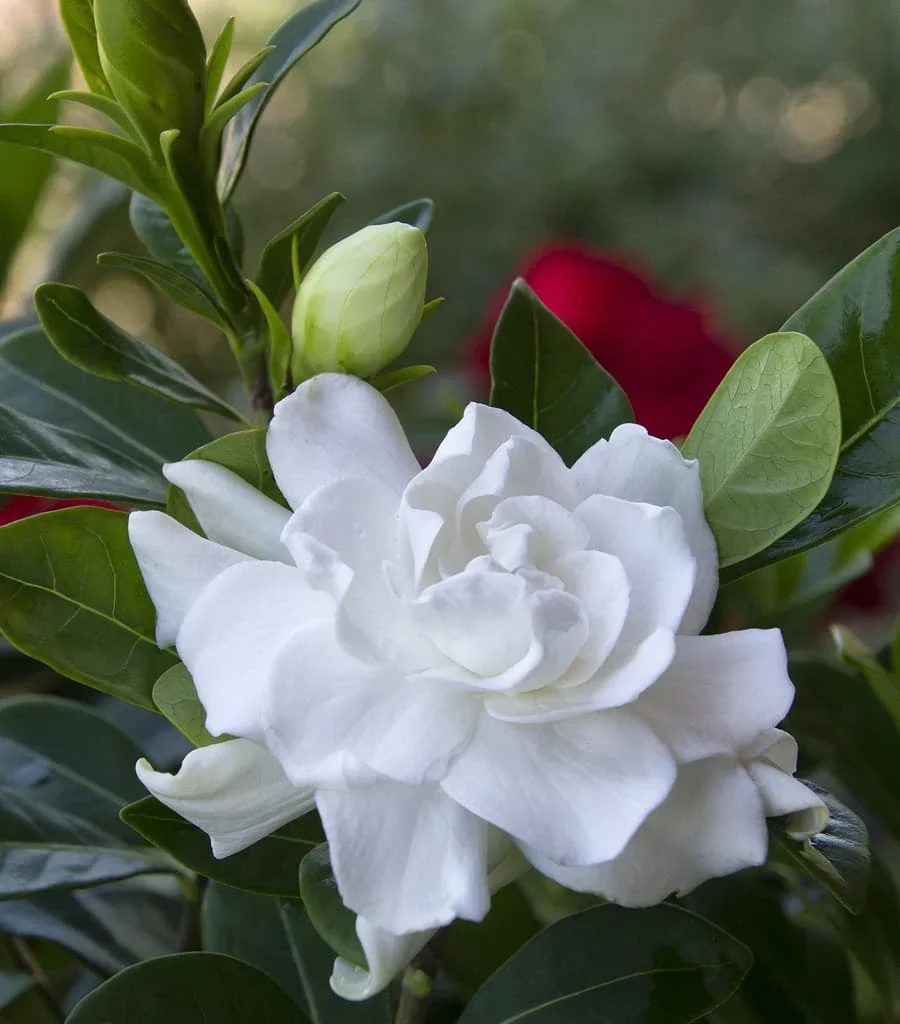
Gardenia is a lush, flowering plant with glossy green leaves and creamy white blossoms that emit a rich, sweet fragrance. Its scent has been associated with reducing anxiety and inducing relaxation, which are crucial for better sleep. Research has even compared the effects of Gardenia’s fragrance to mild sedatives in its ability to calm the mind. Gardenias require bright, indirect light and consistently moist, acidic soil. Though slightly more demanding to care for, the stunning blooms and sleep-promoting properties make it worth the effort.
7. Valerian (Valeriana officinalis)
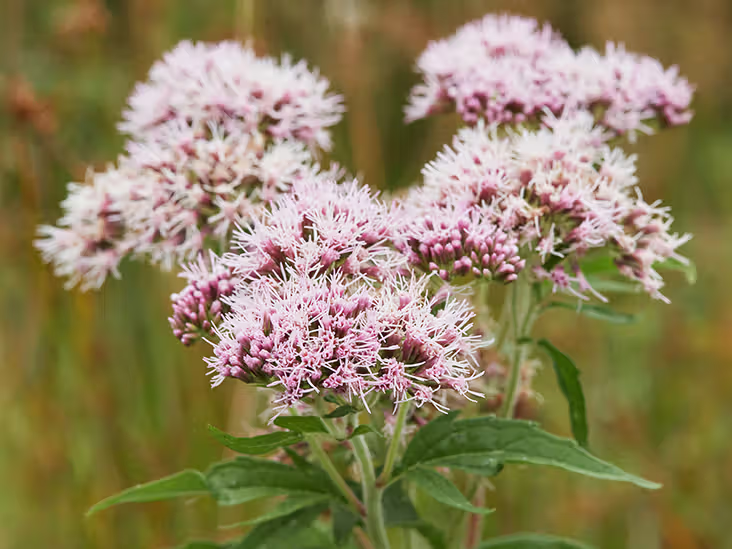
Valerian has long been used in herbal medicine for its potent sleep-inducing effects. The plant produces tiny pink or white flowers with a subtle fragrance known to calm the nervous system and promote deep sleep. Modern studies confirm that inhaling Valerian’s scent can reduce sleep latency — the time it takes to fall asleep. This perennial plant prefers full sun to partial shade and well-drained soil. Valerian is perfect for those seeking a natural, time-tested remedy to enhance their bedtime routine naturally.
Final Thoughts
Incorporating these sleep-enhancing plants into your bedroom not only beautifies your space but also naturally improves air quality, reduces anxiety, and promotes relaxation. Whether it’s the sedative scent of Lavender, the oxygen-boosting ability of Aloe Vera, or the calming fragrance of Jasmine, these plants offer simple, affordable ways to improve your sleep environment. Choose a few of these green companions, place them by your bed or window, and transform your bedroom into a serene, sleep-friendly sanctuary.
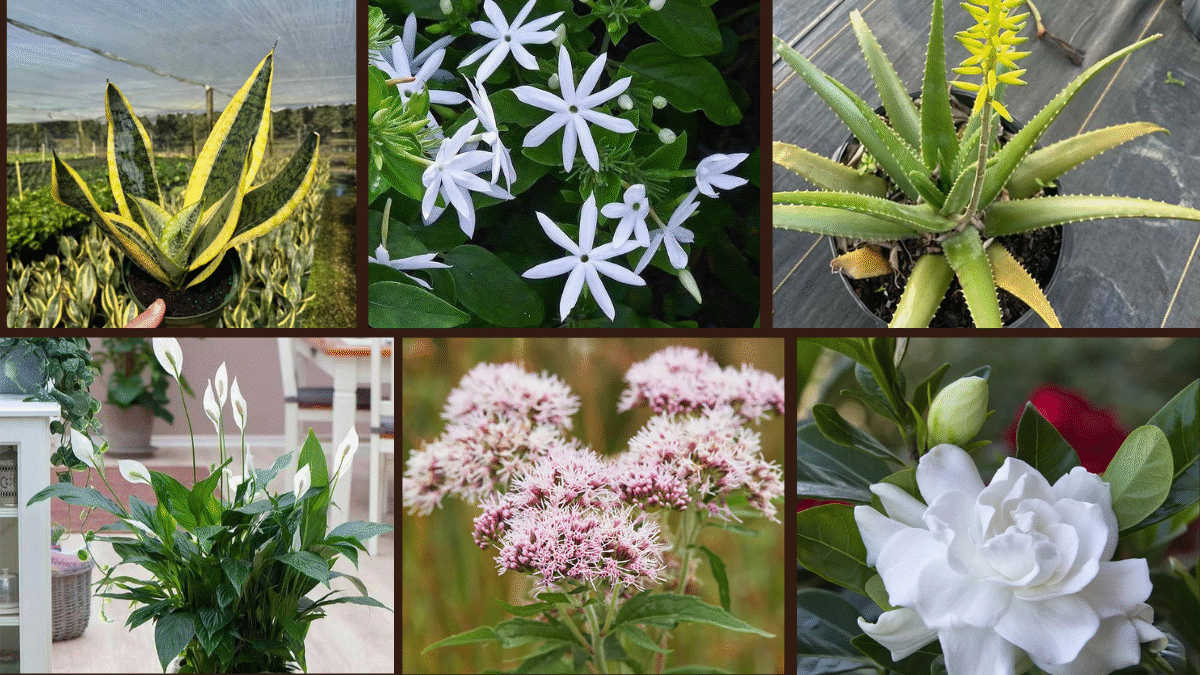



Leave A Comment